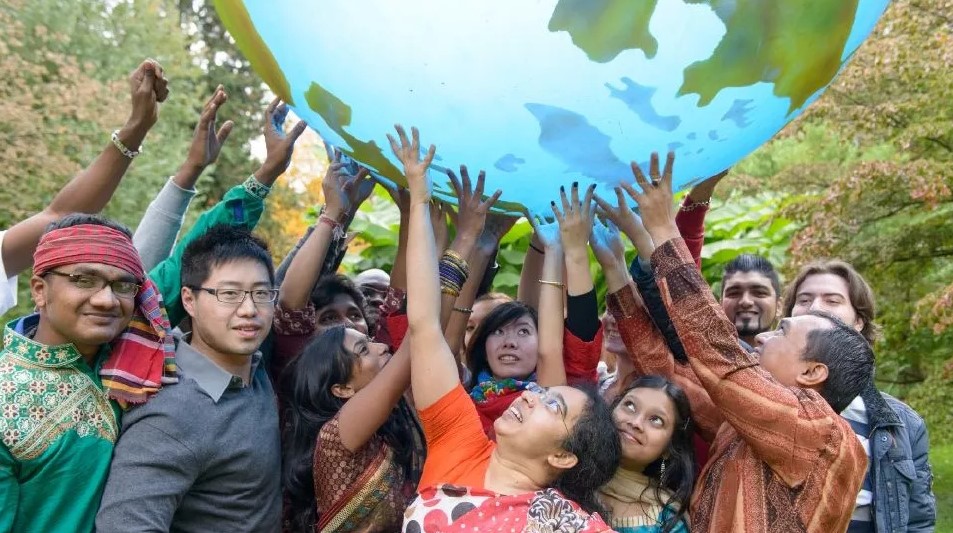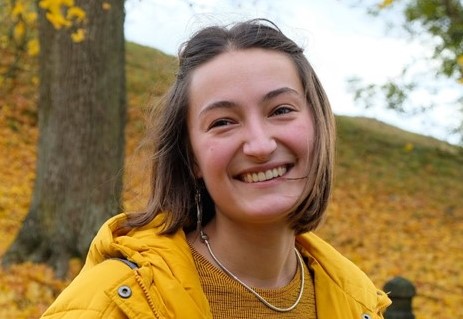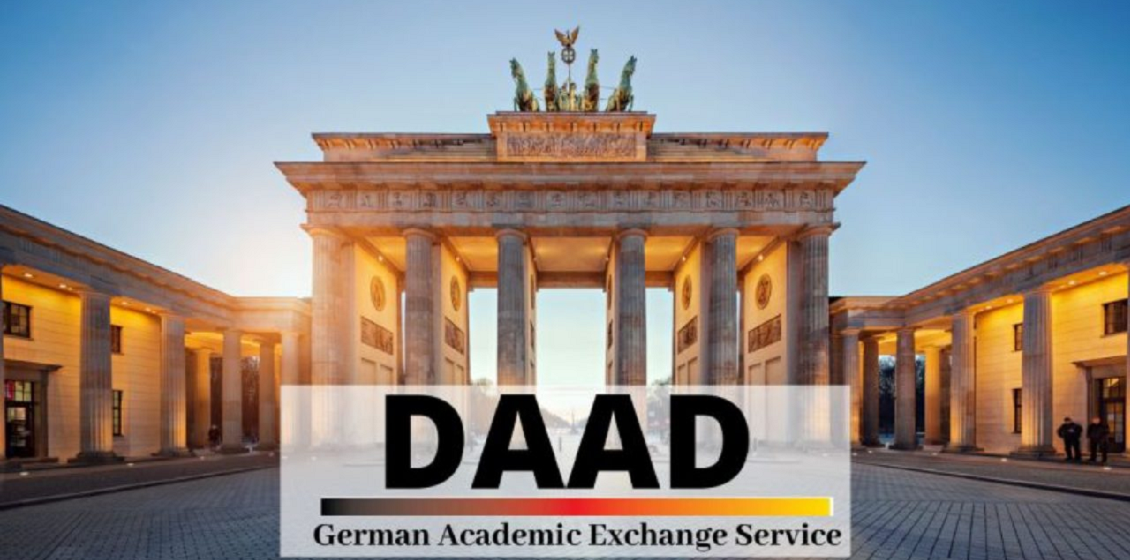The German Academic Exchange Service (DAAD)
The DAAD is an independent organisation of German higher education institutions and their student bodies, devoted to internationalising the academic system. Its guiding principle is “Change by Exchange” which not only refers to the students taking part in the programs, but also to strengthen the international community regarding global knowledge exchange.
In an interview with Dr. Christian Hülshörster, who is the divisional director of the department for Global South programs, and Christiane Schmeken, who is the director of the department for strategy, I asked the experts about DAAD’s current approaches for their international knowledge transfer, as well as equality of opportunities for Global South students within the DAAD programs and scholarships.
The importance of knowledge exchange between Global South and North
When it comes to international knowledge and science transfer, Global South countries are the main sending countries to Germany – except from other EU partners. Dr. Christian Hülshörster addressed the fact, that research from the Global South constantly takes on greater significance in the academic world and is a major dimension considering the subjects of global justice, equity, and sustainability. Furthermore, he referred to a close Global South and North cooperation as a main strategic goal in academic development since global change can only be achieved together. Therefore, the DAAD aims to work in accordance with the SDGs and the Agenda 2030.
Even though Global South countries are heavily affected by global challenges, the local communities in many cases show a high degree of resilience and efficient coping strategies. According to Dr. Hülshörster, the Covid-19 pandemic once again illustrated the value of local knowledge and he specifically stated that international exchange is in current times more topical and relevant than ever before.
DAAD’s portfolio for Global South researchers
In our interview, Dr. Hülshörster put focus on the central value of equality within the DAAD programs and scholarships with their independent selection commissions. The DAAD preferentially considers applicants who show a high degree of social and political engagement, while considering the applicant’s personal backgrounds. As Dr. Hülshörster made clear, the commissioners are highly sensible when it comes to aspects of equality and diversity within their programs and consider both aspects as key criteria in their selection process.
There are several programs and scholarships offered for students and researchers from the Global South such as the “In-Country/In-Region Programme in Developing Countries”. As it says on the DAAD website, the programs’ objectives are to qualify graduates for taking on positions of responsibility in development-related areas – either in teaching or researching – to promote the participation of women or other disadvantaged groups, and to strengthen the capacities of partner institutions. As an example, Dr. Hülshörster addressed the “Leadership for Syria” program which supported 221 Syrian students of whom all students successfully completed their studies in Germany.
One program he was in particularly proud of will be offered for the first time this year: the “Leadership for Africa Programme”. It is originated for 50 African candidates; whereby half of the scholarships will be offered to refugees under the UNHCR protection. The DAAD hopes to support the selected researchers in building up a better future and offering them an academic education as well as future work placement opportunities in Germany.
Experiences during the pandemic
However, the DAAD as an organization is increasingly influenced by global trends and issues which require to adapt and develop continuously. During the Covid-19 pandemic, the DAAD tries to ensure the opportunity for all their candidate to attend their study courses online – or even to postpone their studies. In cases students would like to travel home and continue their studies in their home countries, the DAAD additionally offers travel allowances as a support. Furthermore, and in exceptional cases, the DAAD also wants to provide the possibility to apply for hardship provisions which offer further financial means for their students.
According to Dr. Hülshörster the satisfaction of candidates within the DAAD programs is generally high and did not decrease during the ongoing pandemic. He refers to several mails reaching his team the last months which stated that the administrative support, degree of service quality, as well as flexibility of the DAAD is highly appreciated by the students participating in their programs.
Next steps: Strategy 2025
One specific approach lying beyond the sphere of academic exchange is the Strategy 2025. The DAAD set itself the goal to react to and address to ongoing global challenges with three key aspects: digital transformation, Agenda 2030, and equality of opportunities.
The Strategy 2025’s main goals is to take responsibility concerning the topics of global peace and sustainability as Christiane Schmeken formulated it. Hereby, the DAAD devoted itself to strengthen their support for Global South countries in form of joint knowledge promotion encouraging students from crisis and conflict areas as well as reinforcing research capacities on the ground. Furthermore, she explained that current DAAD programs enabled international and interdisciplinary networking by establishing climate and environment as well as public health and Covid-19 response centres in Global South countries and Germany.
To find out more about the DAAD, its program and scholarship offers, and future goals, follow the DAAD on its social media channels or visit the DAAD website and check out their annual report.
Elena Valentina Mante is a Master student in International Humanitarian Action, Uppsala University, and DDRN University Intern
SUPPORT DDRN SCIENCE JOURNALISM. DONATE DKK 20 OR MORE (APPLICABLE IN DENMARK ONLY)
(APPLICABLE IN DENMARK ONLY)
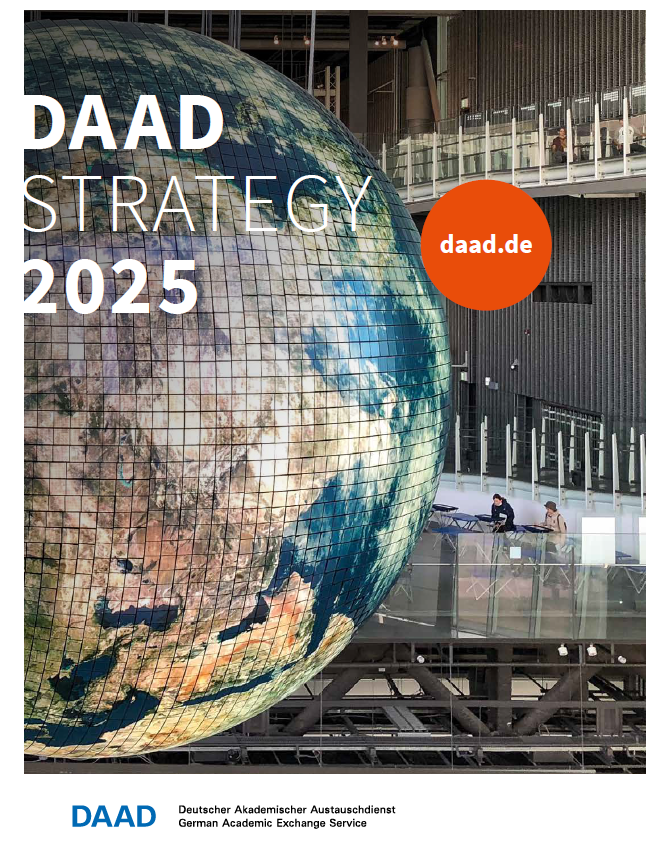
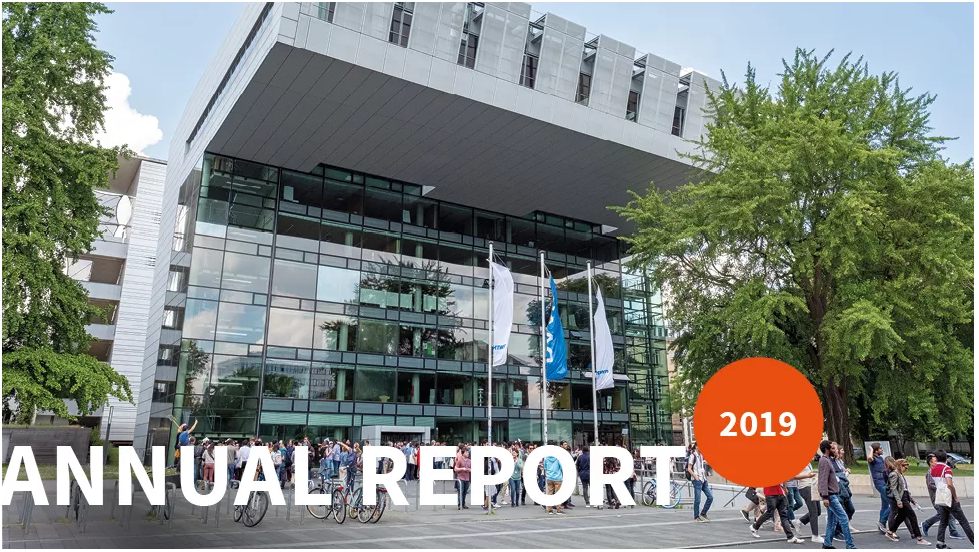
![]()


